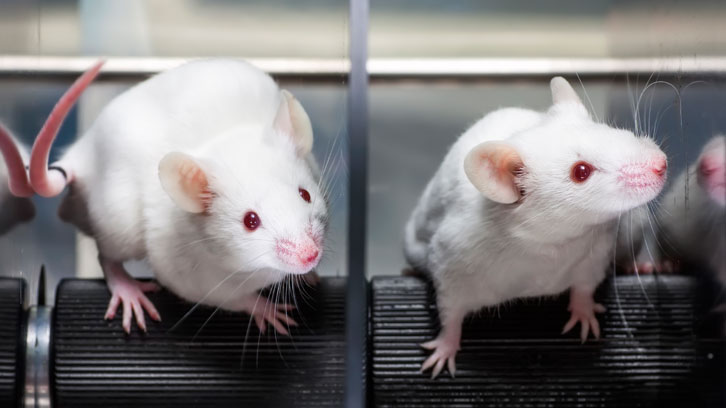Can Exercising Compensate an Unhealthy Diet?

Author: iStock.com/MarquesPhotography.
The prevalence of overweight and obesity due to an unhealthy diet is increasing day by day. It is especially an epidemic in teenagers. To develop new tools to reduce this increment we need to know what the metabolic and physiological effects of cafeteria diet are, but also the psychological consequences. And then ask one question: What is the role of physical exercise here?
We studied what the effects of eating cafeteria diet (bacon, cheese, muffins, etc.) are by using an animal model. Feeding rats with the same unhealthy food we eat could induce obesity and metabolic syndrome (a combination of different physiological alterations which can lead to cardiovascular diseases or diabetes) in them.
In a previous study published in 2014, we had already proved that cafeteria diet induces metabolic syndrome in teenage rats – males and females – and we also observed its effects on the animals’ anxiety. However, contrary to what may be thought, the diet reduced the animals’ anxiety and made them more sociable –especially in females.
Therefore, what we wanted to study now was the effect this diet could produce on coping strategies, which are needed in situations that demand a conscientious effort to solve a problem. We though that cafeteria diet, besides inducing metabolic syndrome, would also affect the animals’ capacity to face these kind of situations, and we wanted to test if physical exercise could compensate it.
To do these experiments, which were recently published in the journal Plos ONE, we gave cafeteria diet to four groups of female rats in their adolescence (during 8 weeks), and four other groups received fodder. Two groups eating cafeteria diet and two groups eating fodder were made to run in two intensities, one low and the other high. Then, using a test called shuttle box, we could compare the effects on the coping strategies and see how much the physical exercise could counteract it.
We observed rats fed with cafeteria diet that did not do physical exercise were less efficient in reacting to an aversive stimuli(shuttle box). However, rats fed with cafeteria diet that practiced intense exercise had the same behavior as the rats fed with fodder. Exercise could also, in part, reverse metabolic syndrome by reducing the levels of lipids and triglycerides.
What conclusions did we reach? First, that cafeteria diet alters not only the metabolism of the animals but also their behavior, modifying their coping strategies. And then, that it can be reversed in part by practicing moderate-high intensive aerobic exercise.
In the future it would be interesting to study it in males and also deepen the psychological effects this diet can produce.
References
Cigarroa, I.; Lalanza, J.F.; Caimari, A.; de Bas, J.M.; Capdevila, Ll.; Arola, Ll.; Escorihuela, R.M. Treadmill Intervention Attenuates the Cafeteria Diet-Induced Impairment of Stress- Coping Strategies in Young Adult Female Rats. PLoS ONE. 2016, vol. 11, num. 4, e0153687. doi: 10.1371/journal.pone.0153687.
Lalanza, J.F.; Caimari, A.; del Bas, J.M.; Torregrossa, D.; Cigarroa, I.; Pallàs M.; Capdevila, Ll.; Arola, Ll.; Escorihuela, R.M. Effects of post-weaning cafeteria diet in young rats: metabolic syndrome, reduced activity and less anxiety-like behaviour. PloS ONE. 2014, vol. 9, num. 1, e85049. doi: 10.1371/journal.pone.0085049.

